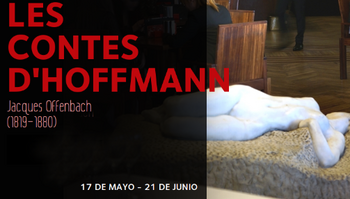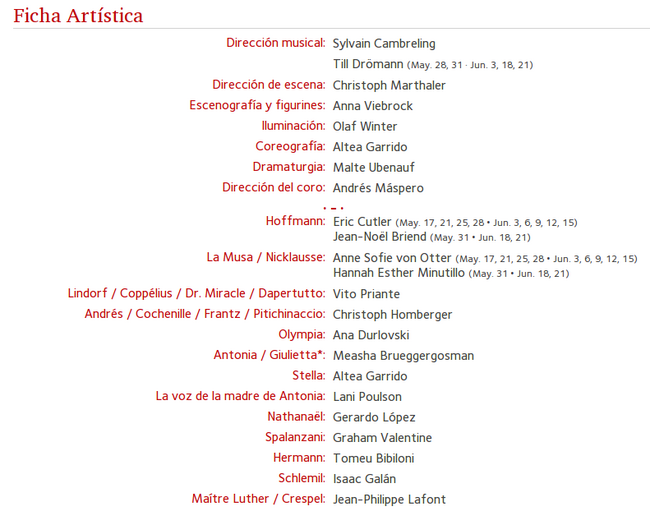We went to see one of our favorite opera, les contes d’Hoffmann at the Teatro Real, own production in collaboration with the opera from Stuttgart. This was on 3 June (2014) (a Tuesday), a day where two lazy students decided to complain about not passing with horrible marks and zero understanding of the topic. The delay occasioned by their theater bringing in succession a plea, then bargaining, then menaces, then insults and finally literally crying, almost made us late for the opera.
However, we arrived just on time, seconds before they locked the access. We were extremely lucky that our balcony was empty, allowing us at the reduced fee to enjoy the piece with the full visibility (which was still reduced given we were not facing the stage). This is what we had paid for:
Área Área Precio F Zona Proscenio de Anfiteatro Fila 001 Asiento 003 Visibilidad muy reducida o nula (menor comodidad) Fila 001 Asiento 004 Visibilidad muy reducida o nula (menor comodidad)
It turned out to give us the best view ever we had from the Teatro Real, literally on top of the stage. Elena was a bit sick from pregnancy. I almost got lost when returning with a glass of espumante and tortilla de patata during the Entr'acte.
The work itself was—of course outstanding—but first of all peculiar, with many a daring features, not only because it featured prominently full frontal nudity, but particularly for an extraneous text from Fernando Pessoa, read, not sung. It also has nice allusions to Madrid, for instance the central figure in the first act and that makes the cover is a reproduction of the figure in the bar of the Bellas Artes, but alive.
The whole work can be viewed from this Arte recording.
From the theater's promoting material:

- En la nueva versión de Les contes d’Hoffmann de Jacques Offenbach que presentamos al público de Madrid, Nicklausse, la musa y el alter ego de Hoffmann, canta al final de la ópera: “On est grand par l’amour, mais plus grand par les pleurs” (El amor nos hace grandes, y más grande aún el llanto). Este es un motivo del considerado “el siempre divertido Offenbach” y, sin embargo, se trata de una concepción artística con la que se une al movimiento romántico desde Victor Hugo hasta Thomas Mann pasando por Berlioz, para el que la obra de arte y la inspiración surgen del sufrimiento y la melancolía sobre el acontecer del mundo. Esto convierte a la única ópera de Offenbach en una singular creación en la que el arte triunfa sobre el dolor del amor.

Links
- Le blog du Wanderer (in French).